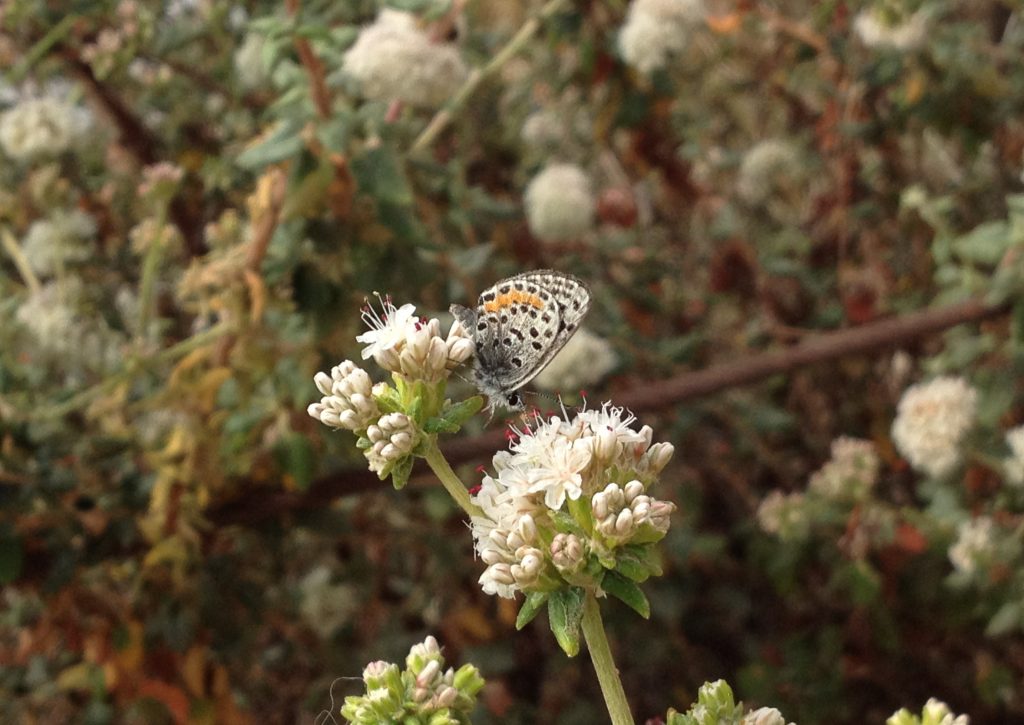
STATUS
Federal status: Endangered
POPULATION TREND
(=) Stable
RESTORATION
Difficult
FAMILY
Lycaenidae, the gossamer-winged butterflies
RANGE
Endemic to coastal areas of Los Angeles County
Appearance
A small blue butterfly with a wingspan of 2 to 2.5 cm. Its outer wings are gray with square-shaped black spots and a series of orange spots that merged into a single band of orange.
Habitat & Behavior
El Segundo blue butterfly occurs in sand dunes with coast buckwheat, Eriogonum parviflorum (also called cliff or seacliff buckwheat). All life stages of the insect, including the egg, larva, pupa, and adult butterfly, depend on this particular species of buckwheat. The El Segundo Blue only occurs as an adult butterfly during the flowering period of coast buckwheat (June to September). In the butterfly stage, it lives for just four days to two weeks and rarely travels more than 200 meters.
Threats
The development of sand dunes in Los Angeles over the last 100 years has significantly reduced, fragmented, and degraded the El Segundo Blue’s habitat. Today, its habitat continues to be threatened by invasive species, such as ice plant and non-native grasses, which compete with the El Segundo blue butterfly’s host plant, coast buckwheat. The lack of long-term conservation status and management is a major obstacle to the recovery of this subspecies.
Conservation
Conservation and restoration of native flora, particularly coast buckwheat, is critical to the future of the El Segundo blue butterfly. Significant restoration work has been conducted in several areas of Los Angeles, including the Airport Dunes Recovery Unit at the Los Angeles International Airport.
Where can you spot it?
Coastal dune habitat has recently been restored in Playa del Rey. The best time to observe El Segundo blue butterfly is from July to August.